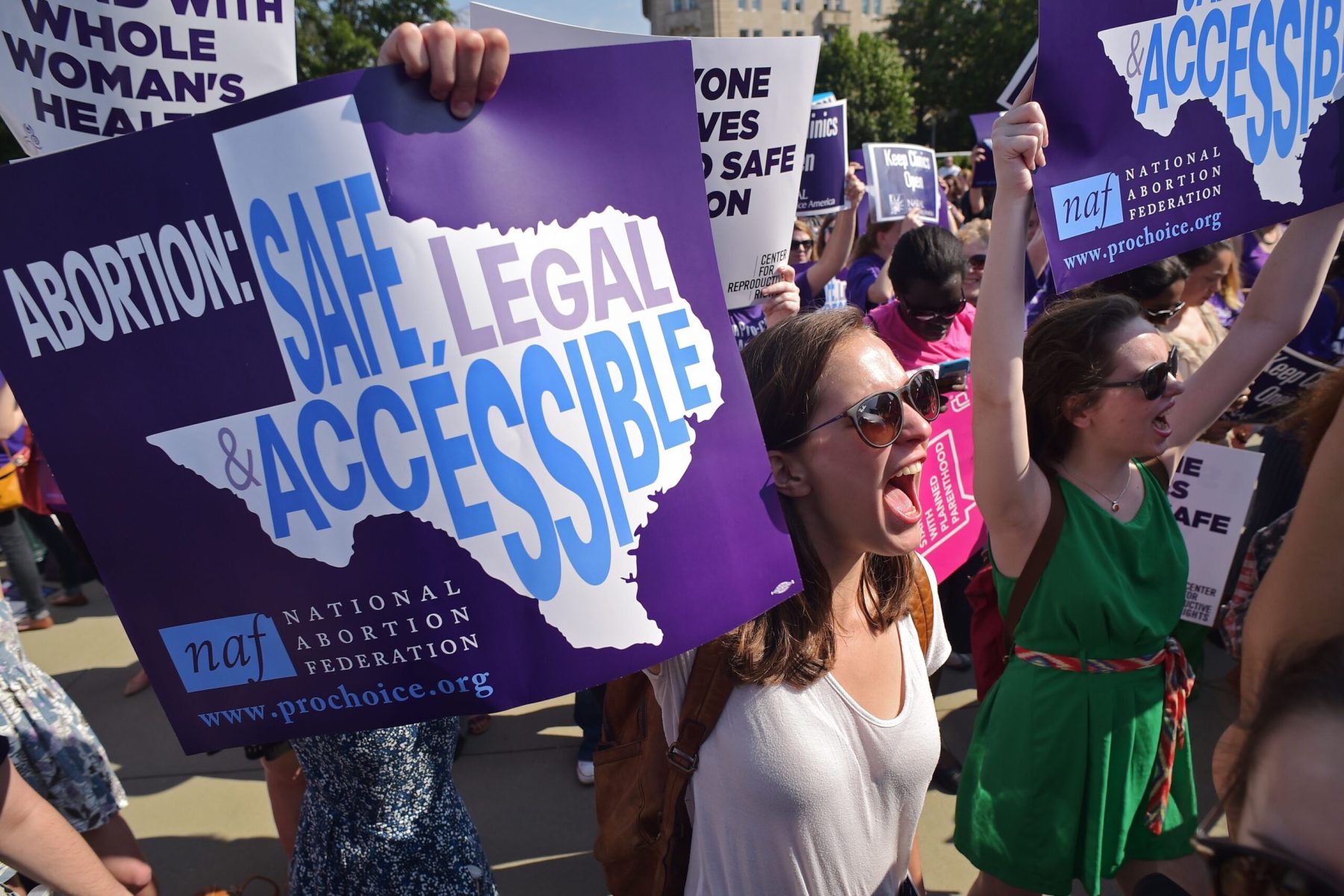Editor’s note: This story has been updated to include reaction from the White House.
Texas has virtually ended abortion access: A ban on the procedure after six weeks of pregnancy took effect at midnight on Wednesday. Though Senate Bill 8 may be blocked or even overturned — it is still being appealed — it will almost certainly be too late for Texas abortion providers, many of which are expected to close their doors in response.
“This law will end legal abortion in Texas. Allowing the state to do that and effectively close all abortion clinics — even if the law is ultimately struck down — will give the state what it wants,” said Leah Litman, an assistant professor of law at the University of Michigan and expert in constitutional law. “Just allowing this law to go into effect is ending abortion in Texas.”
The six-week ban is early enough to effectively ban abortion for many. Often, people do not realize at six weeks that they are pregnant. In 2018, the most recent year for which national data is available, almost two thirds of abortions took place after six weeks.
The law also creates a vigilante system of punishment, empowering private citizens to sue anyone they believe may have “aided or abetted” someone getting an abortion after six weeks. If a lawsuit is successful, the plaintiff would receive at least $10,000 and have any legal fees reimbursed.
The law is nonspecific about what would constitute “aiding or abetting.” Legal experts say that vagueness could have a chilling effect, discouraging people from, for instance, giving someone money to seek an abortion after six weeks, or helping them drive to an appointment or find lodging.
Already, the law has begun to curtail access to abortions. In August, Texas’ Planned Parenthood clinics stopped scheduling any appointments related to abortions after six weeks of pregnancy, if the visit would have taken place after September 1. Whole Woman’s Health, another major abortion provider, said it would no longer schedule such visits starting Wednesday.
President Joe Biden said in a statement on Wednesday that his administration is “deeply committed to the constitutional right established in Roe v. Wade nearly five decades ago and will protect and defend that right.”
It’s unclear exactly what protecting and defending that right looks like. White House Press Secretary Jen Psaki, fielding questions on the new law on Wednesday afternoon, said Biden will “continue to call” for action from Congress to ensure abortion access, adding that the Texas law “highlights even further the need to move on that effort.”
She said she couldn’t speak to potential actions independent agencies like the Justice Department or the Food and Drug Administration might take.
Texas’ reproductive health clinics have sued to have the law overturned. A lower federal court was supposed to hear arguments last week, but its supervising appellate court — the conservative 5th Circuit Court of Appeals — canceled the hearing late last Friday night.
On Monday, reproductive health providers appealed to the U.S. Supreme Court, asking that it either block the abortion ban or require lower courts go forth with the appeals process. But the court has not yet responded to that request.
Asked whether the lack of action from the Supreme Court on the Texas law has changed Biden’s views on expanding the number of justices on the high court, Psaki pointed to the court reform commission the president established to explore the issue, and said Biden “will wait for that process to complete.”
As midnight approached on Tuesday night, SB 8 was trending on Twitter. Furious activists declared that Roe v. Wade had effectively been overturned and started raising the idea of increasing the number of justices on the Supreme Court.
The Supreme Court could still choose to act, but once the clock struck midnight, the law took effect in Texas. That means it will likely be too late to undo much of the law’s impact: Complying with the law will dramatically reduce patient volume, forcing abortion-providing clinics to vastly scale back their services. Health care providers are expected to stop providing the bulk of their services, or even leave the state.
Abortion funds — which raise money for people who need to travel to get an abortion, or who cannot afford to pay for the procedure — could also be held liable under the “aiding and abetting” clause, and may have to reduce their work. That means fewer people would be able to afford services.
And critically, clinics that are sued could be shut down, particularly if they are found guilty of breaking the new law. Even if the law is ultimately overturned, reopening a closed health clinic will likely prove difficult at best.
“It will likely mean certain clinics shutter because people cannot afford to go to them,” said Melissa Murray, a law professor at New York University and an expert in reproductive health policy. “Even if the law is later found unconstitutional, you can’t unring that bell.”
A recent Texas case study supports Murray’s theory. In the summer of 2013, the state passed a massive abortion restriction law, which, among other changes, required that doctors who performed abortions have admitting privileges at a hospital within 30 miles and required clinics to meet the requirements of ambulatory surgical centers.
That provision took effect in November of that year. As a result, almost half of the state’s abortion clinics were forced to shut down.
Three years later, the law was overturned in the 2016 Supreme Court ruling, Whole Woman’s Health v. Hellerstedt. But it was too late for many clinics.
“Even after the ruling, the clinics didn’t go back to the capacity they had,” Murray said. “The law had an impact on access.”
It’s unclear if or when the Supreme Court — which has a conservative 6-3 majority — will address the question of whether Texas’ law is constitutional. But if the law in some form succeeds, other conservative states are likely to try emulating it.
Later this fall, the Supreme Court is separately due to weigh in on abortion rights, in a case examining a law from Mississippi that would ban the procedure at 15 weeks of pregnancy. That ban is less restrictive than Texas’ law, but also attacks the core provision of Roe v. Wade. It is not yet clear how a ruling on that case could affect how the court views Texas’ law.
Editor-at-large Errin Haines contributed to this story.
Disclosure: The PlannedParenthood Federation of America has been a corporate sponsor of The 19th.







